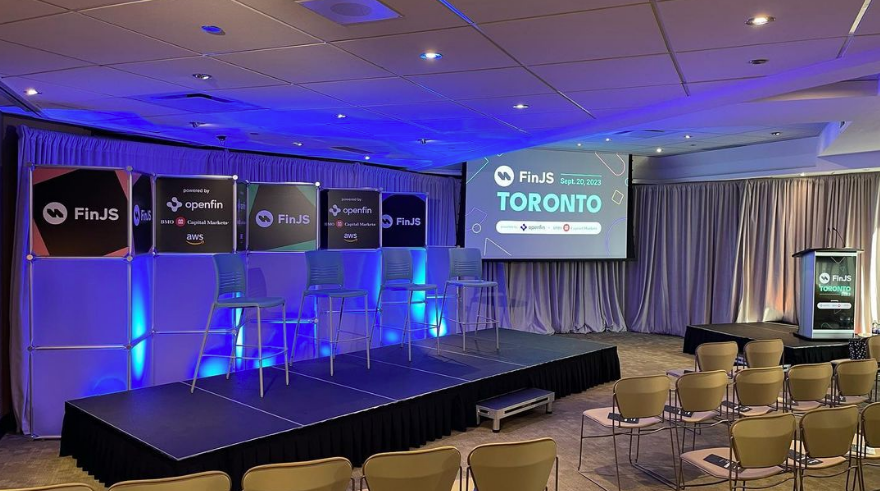
People’s lives are greatly influenced by special events as they represent times of joy, celebration, and connection. These events, which range from weddings and birthdays to corporate events and neighborhood festivals, establish meaningful ties by bringing people together and creating long-lasting memories.
With an all-inclusive guide to mastering the craft of planning exceptional special events, this blog wants to become your go-to source. Our professional guidance and helpful tips will help you organize memorable social events or business meetings. Explore every aspect of event planning, from conception to implementation, to discover the secrets to creating unforgettable and special events.
Understanding Special Events
Events that are unique mark significant events in people’s lives by expressing changes, achievements, and the expression of deep emotions. Events, ranging from private family gatherings to large corporate conferences and neighborhood festivals, are meticulously planned to create life-changing experiences. Special events are incredibly important in terms of culture, society, and emotion, in addition to their technical difficulties. They are the threads that bind together neighborhoods, creating linkages, fortifying bonds, and developing a sense of belonging.
Additionally, weddings reflect the essence of commitment and affection in the world of private celebrations, whilst birthdays mark the passing of time with joyful reflection. Conferences and product launches are examples of corporate events that foster innovation and knowledge sharing, helping to shape industries and motivate employees. On the other hand, cultural festivals and charity galas encourage variety and compassion, bringing people together for a common goal. Well-planned special events leave a lasting impression on participants that goes far beyond the event itself. They leave us with enduring memories, stir up intense feelings, and make a considerable difference to the social environment of our lives.
Planning Your Special Event
Defining Purpose and Setting Goals for Special Events
The foundation of successful event planning lies in clearly defining the purpose of the event and setting achievable goals. Whether it’s a wedding, corporate conference, or charity fundraiser, understanding the event’s objectives helps in shaping all subsequent decisions. Is it a celebration of love, a networking opportunity, or a fundraising initiative? Defining these aspects provides a roadmap for planning, ensuring every element serves a specific purpose and contributes meaningfully to the event’s overall success.
Creating a Budget
Creating a comprehensive budget is fundamental to the special event planning process. Start by outlining all potential expenses, including venue rental, catering, decorations, entertainment, and staff. Factor in contingencies for unexpected costs. It’s essential to prioritize expenses based on the event’s priorities and allocate resources accordingly. Regularly revisit and update the budget as planning progresses to ensure financial discipline and prevent overspending. A well-managed budget ensures that resources are utilized efficiently, maximizing the impact of your event.
Choosing the Right Venue and Entertainment
Selecting an appropriate venue sets the ambiance for your special events. Consider the location, capacity, facilities, and accessibility. It should align with the event theme and cater to the comfort of your guests. When it comes to catering, focus on quality, diversity, and dietary accommodations to cater to all attendees. Entertainment choices should resonate with your audience, whether it’s live music, keynote speakers, or engaging activities. Tailor these choices to match the event’s tone and the preferences of your guests, creating a memorable experience that they’ll cherish.
Event Timelines and Checklists
Furthermore, developing a detailed timeline and checklist is indispensable for staying organized and ensuring nothing is overlooked. Break down the planning process into manageable tasks with specific deadlines. Include everything from sending invitations and confirming vendors to creating event programs and coordinating rehearsals. Regularly review and update these timelines and checklists as the event date approaches, allowing you to track progress and address any potential issues proactively. Additionally, a well-organized timeline and checklist are your best tools for staying on top of tasks, minimizing stress, and guaranteeing a seamless execution on the day of special events.
Managing Logistics and Technical Aspects for your Special Events
Technical Aspects
Attention to technical details such as sound systems, lighting, and audio-visual requirements is paramount to the overall experience of the event. Collaborate closely with technical experts and vendors to understand the venue’s infrastructure and ensure it aligns with your special events needs. Future’s Past Events invests in high-quality sound systems to ensure clear and crisp audio for speeches, presentations, and entertainment. Thoughtful lighting enhances the ambiance, setting the mood and highlighting key event elements. Additionally, reliable audio-visual equipment is essential for displaying presentations, videos, and other visual content seamlessly. Conduct thorough checks and rehearsals to identify and address any technical glitches well in advance of the event.
Contingency Planning and Managing Unexpected Situations
In the dynamic landscape of event management, being prepared for the unexpected is vital. Develop a comprehensive contingency plan for special events that anticipates various scenarios, including technical failures, weather disruptions, or sudden vendor cancellations. Identify backup options for key elements such as venues, catering, and entertainment. Designate a dedicated team responsible for managing contingencies and equip them with the necessary resources and contacts. Regularly update your contingency plan as the event date approaches, considering potential challenges specific to the event location and season.
Equally important is the ability to adapt and make swift decisions in real time. Empower your event staff with clear communication channels and decision-making authority to address unforeseen situations promptly. Maintaining open lines of communication with vendors, staff, and attendees is crucial, allowing you to relay important information swiftly and efficiently. Moreover, by proactively preparing for contingencies and fostering a flexible and responsive event team, you can navigate unexpected challenges with confidence, ensuring a smooth and successful event experience for all involved.

Comments are closed.